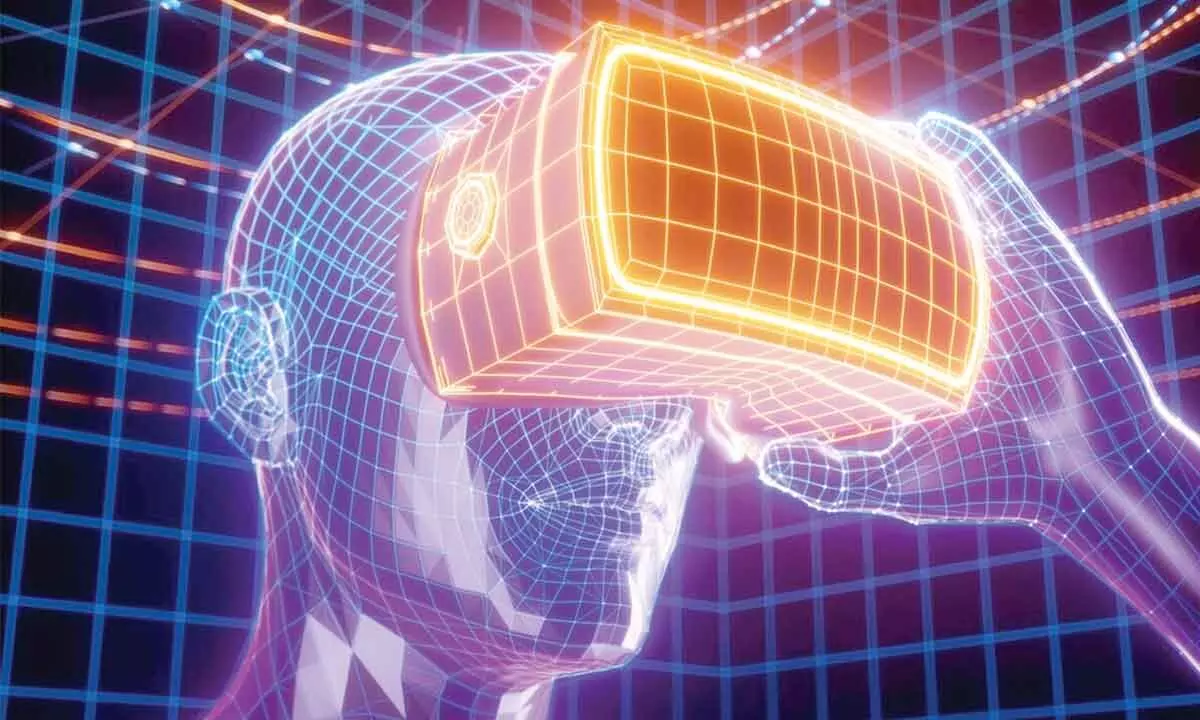Role of Metaverse in edtech sector

Metaverse in the EdTech market is causing a significant transformation in the education sector
The Metaverse is an exciting and disruptive space with the entire world looking forward to developments and preparing for a competitive edge. It may be time for all of us to consider additional novel opportunities that this space might present us with such as in marketing in the form of virtual experiences and product launches.
The way that India develops its workforce and educational system can be revolutionised by using immersive technologies like AR and VR. As the country is still troubled with deep-rooted infrastructural issues, a virtual space provides us with an alternative that is ready to scale. This is the answer. The Metaverse offers it.
There is a growing desire to feel, discover, and engage in experiences apart from the physical world. The coronavirus pandemic, according to UNICEF, affected 91 percent of students' education worldwide. Both students and teachers have had to adjust to a new, remote style of learning since the beginning of 2020. Throughout Global lockdowns, technology has been essential for ensuring that education has not stopped.
Now, both educators and tech experts are curious about the future: if the internet is useful for learning in its current form, what kinds of things might the metaverse allow us to do? In the metaverse, people can interact, live, learn, and study in a 3D virtual world while donning VR headsets.
Education institutions and EdTech companies are leveraging metaverse in education to remove distance and physical barriers from learning and to make it more immersive, engaging and participatory. They recognise the need for a fundamental transformation in all aspects due to the nature of their work, increasing the market for EdTech's consideration of the metaverse.
The Metaverse's educational wonders
EdTech companies are eager to enhance learning experience by creating multiple Worlds that aid students in developing a deeper understanding of particular subjects, even though the metaverse is still in its infancy. This is further encouraging the sale of Metaverse in the EdTech market. In the future, the metaverse may enable students to create their own virtual worlds where they can interact with other students and share their experiences. The metaverse adopts a simple strategy. By incorporating technology, it involves enhancing conventional learning methods and streamlining learning by providing a practical hands-on experience.
Market recognition
Top business leaders are interested in the metaverse because it provides students with a gamified learning experience and constant access to research materials. The global market for educational technology is one of the fastest growing. According to a recent Future Growth Insights analysis, the EdTech market is expected to reach more than $288.4 billion by the end of 2031, growing at an astonishing 14.5% CAGR (compound annual growth rate). To gain an early driver advantage and to promote the metaverse in education, top tech companies and investors are making significant bets.
Stirring imaginations
The story of online courses has been significantly improved by the gamification of educational technology (EdTech). Gamification is a proven way to improve student motivation and learning results and works as a supplement to conventional methods.
Virtual learning can include simulators that resemble video games and provide both teachers and students adaptive learning opportunities thanks to real-time feedback. It makes possible brand-new approaches to instruction, such as guiding students on engaging storyline journeys in a vast, immersive virtual environment. Students can learn the abilities they must develop as well as how to apply those talents to real-world problems, which engages them more deeply and improves their conceptual comprehension.
Tools made possible by metaverse in education help students easily learn, comprehend, and apply knowledge. The idea of learning in the presence of a teacher is also retained in the metaverse. In fact, it views the teacher as the main proponent of instruction, learning, and teaching. Since there are many different ways to learn, from being present in a virtual environment to being present inside a classroom, the metaverse in education encompasses a wide range of learning. The metaverse has been incorporated into the EdTech market, making the future of education more exciting and engaging than ever.
(The author is the Co-Founder of Hoping Minds)
Immersive capacity
The immersive learning environment provided by the metaverse in education is here to stay. By fusing the metaverse with education, students can participate in a variety of events where they will have a virtual avatar.
Competition, assessments and engagement can be disruptively redefined. In order to provide a more realistic experience, businesses are also creating virtual avatars that let students customise them based on the environment they are in and the subject they are learning.








